The Internet as an Otherworld
Shamanic passage through technology, the Age of Breach, and the psychedelic ideas of Alexander Beiner
Hi, today I want to share some ideas I’ve gathered from a talk by
, author of The Bigger Picture: How Psychedelics Can Help Us Make Sense of the World, a book and a Substack, which was part of a fantastic, ongoing online seminar I’m currently attending called The Future of Consciousness, hosted by , and featuring many incredible scholars, writers, and speakers.One section of Beiner’s talk, which I found particularly interesting and exciting, focused on the idea of the Internet as an “Otherworld,” and compared it to the otherworlds of mythology, like fairy realms and mermaid kingdoms. He suggested that we can learn something about navigating these digital Otherworlds from how shamans and experienced psychonauts traverse psychedelic realms.
The Collective Unconscious of the Digital Otherworld
“It's just going to get weirder and weirder and weirder and finally it's going to be so weird that people are going to have to talk about how weird it is.” — Terence McKenna.
Beiner is interested in how and where our collective unconscious is unfolding worldwide, and how our collective unconscious, as conceived by Carl Jung, is manifesting in this online “Otherworld” or AltWorld. The Internet is both a technological innovation and a psychospiritual innovation, but we haven’t reconciled its effects on our psyches.
He notes that we’re increasingly unable to deal with the complexity of the physical world and the complexity of the Otherworlds of the Internet, LLMs, social media, and, I believe, probably soon the metaverse.
We enter the Otherworlds through the portal of our phone, and thus we are constantly dipping in and out of different worlds, but we don’t know what all this world dipping is doing to us psychologically.
This dipping in and out is similar to shamanism and shamans entering and exiting the ayahuasca realm, the smokeable DMT realm, the Magic Mushroom realm, etc. To manage this, shamans develop methods for tolerating complexity and sensory details, and ways to deal with any entities or forces they encounter. They form deep discernments for these multiple contexts and can shift seamlessly between them and embody multiple worlds at once if necessary, existing InBetweenWorlds and in BothWorlds. These types of shamanic techniques are perhaps things we need to develop to better manage the role of these Otherworlds in our lives.
Beiner also participated in the DMT extended state trials at Imperial College London, where he took DMT intravenously for forty minutes and communicated with psychedelic, talking hyper-dimensional chinchillas.
He further shared on his Instagram a story about meeting the DMT “Spider Queen” who was the size of a planet. This sounds very much like a manifestation of the cosmic Spider Grandma, Kokyangwuti, from Hopi mythology, which I also included in my second novel, Mushroom Honeymoon.
Interestingly, the lesson he learned from the Spider Queen on his trip is a lesson the protagonist in my novel, Saman, grapples with in the novel. I won’t spoil the plot here, but this small coincidence further reminds me how archetypal and mythological ayahuasca and DMT experiences can be, which, to return to our comparison of these psychedelic realms with the Internet’s Otherworlds, is not entirely unlike the insights a trip down an Internet Rabbit Hole can yield.
Beiner said that one of the most powerful elements of the DMT extended state experience for him was the “Overview Effect,” a term astronauts use to describe the awe-inducing view of seeing Earth from above as a complete planet, vs being on earth’s surface. The overview effect struck him when he was surrounded in the infinite DMT Otherworld by endless complex and super-intelligent entities, as if he’d traveled to a new planet.
Complex, Emergent Systems
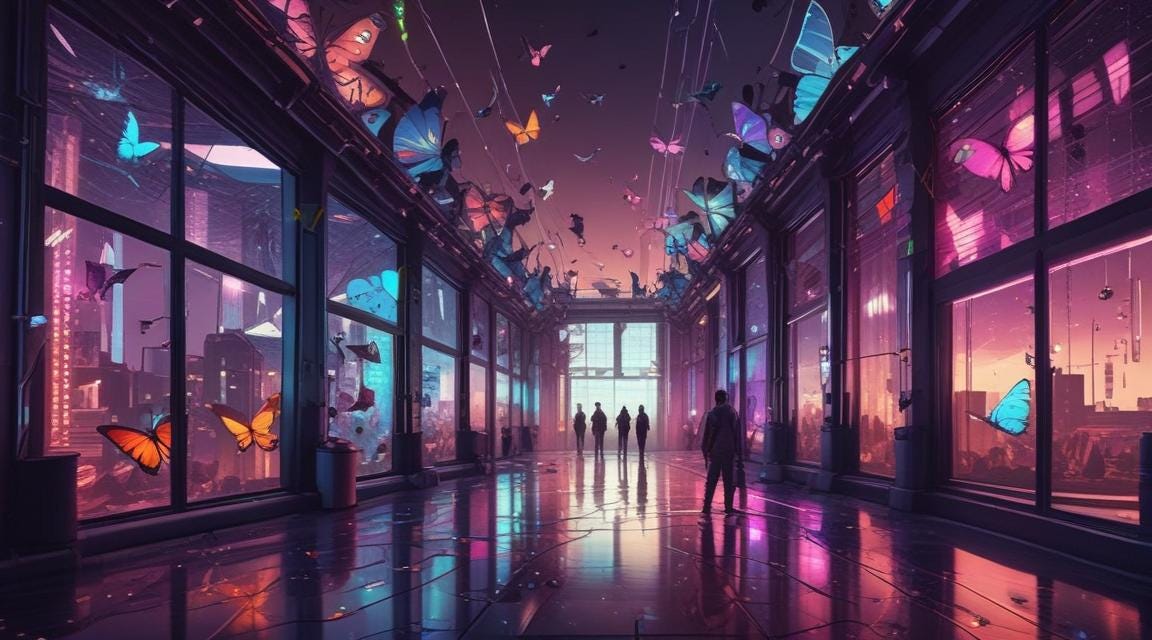
Both our otherworlds and our physical world contain complex systems with lives of their own, with their own unique collective unconsciousness. We don’t understand them and we can’t predict them.
For example, a former employee at Twitter told me that even the engineers couldn’t really predict how the Twitter algorithm would change or manifest. We have no idea what will emerge from these worlds.
Likewise, we can’t predict how a simple change to a traffic light system might impact the commerce of local businesses. The butterfly effect is all around us and what used to be only the physical world is now also impacted by these increasingly complex digital realms.
The complex systems that emerge also contain emergent intelligences that are bigger and more powerful than their individual parts. They run themselves, but as they change, they can also cause problems for the individuals within them. This can result in a crisis.
Beiner discusses two types of crises that can emerge from these systems:
A “banal crisis,” a term coined by
, where a bunch of little things no longer work for individuals, such as a widening gap in wealth inequality, or the healthcare system.An apocalypse
The otherworlds of the Internet, AI, and social media accelerate these two types of crises via leakage and fragmentation of our physical world. To solve them requires decisions we haven’t yet made, using data we don’t understand.
Identity in the Digital Otherworld
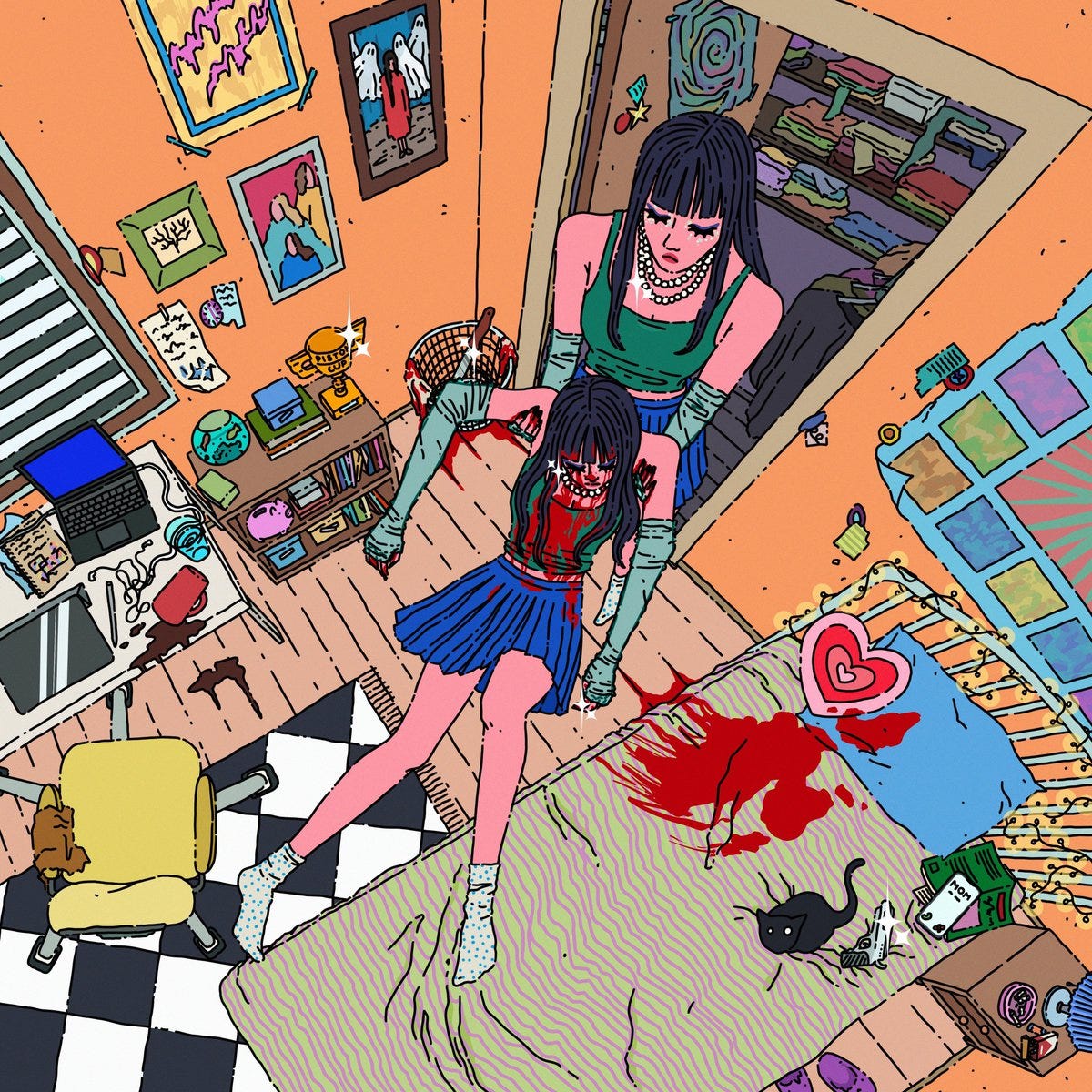
Different realms in the otherworld of the internet are also populated by different types of people and by fragments of subgroups. These fragments can have a massive impact on real-world politics.
He cites Tumblr and 4Chan as examples. These sites also allowed people to fragment their own identities and to create fluid identities. Subsequently, the collectives that emerged from these Otherworlds had a dramatic influence on the physical world and on individuals who weren’t even members of these subgroups, such as 4chan helping to meme the Trump presidency into existence, or how Tumblr assisted in infusing 4th wave feminist ideas into pop culture.1
Otherworld Archetypes
The collective unconscious, combined with the fragmented and invented identities in our digital Otherworlds, also creates emergent new archetypes.
“All of our hopes, dreams, sexual fantasies, resentments are poured into the internet in a million different ways… they coalesce into a kind of archetypal community and this mimics what Jung talked about in the collective unconscious.” — Alex Beiner.
These emergent archetypes can be common and uncommon and can spread easily through populations of users and visitors to different realms.
Common ones are heroes, wizards, damsels in distress, etc, but you also get newer ones like crypto brunchlords, Elonstans, VSCO girls, Kyles, Karens, coastal grandmas, and ecath trad wives. As Carl Jung believed, there are as many archetypes as there are types of human experience.
Additionally, these archetypes and archetype-based groups can create pockets of order in the collective unconscious of the otherworld. The archetypes even form ordered realms with their own rules, sacred texts, symbols, memes, desires, and cultures.
The Age of Breach
In what Alex calls “The Age of Breach,” an archetypal-driven realm in the Internet Otherworld enters the physical world and sends its online member’s archetypal entities to physically manifest in their true forms to do the group’s bidding, such as when Q/4Chan inspired people to raid the U.S. capital on Jan 6th.
Or when streamer Kai Cenat fans overran Union Square in NYC2 in an attempt to win free video game consuls.
Suddenly the alt realm enters the physical quotidian and causes positive events, like the Arab Spring, neutral results, or even a harmful crisis, like the recent and more sinister instance of organized rape overlord Dominique Pélicot.
In a French case that’s now making international headlines, Pélicot, over the course of nine years, drugged his wife Gisèle, who was in her mid 60s at the time, and now 73, and invited men from a non-consensual sex online chat room called “without their knowledge,” to come over and rape her unconscious body while he filmed them. He did this approximately 100 times. The wife, unconscious, didn’t know until police began investigating her husband for a different crime (filming up strange women’s skirts in a market) and discovered the rape footage. Now they’ve located 50 of the men from the chat room and they’re standing trial in France.
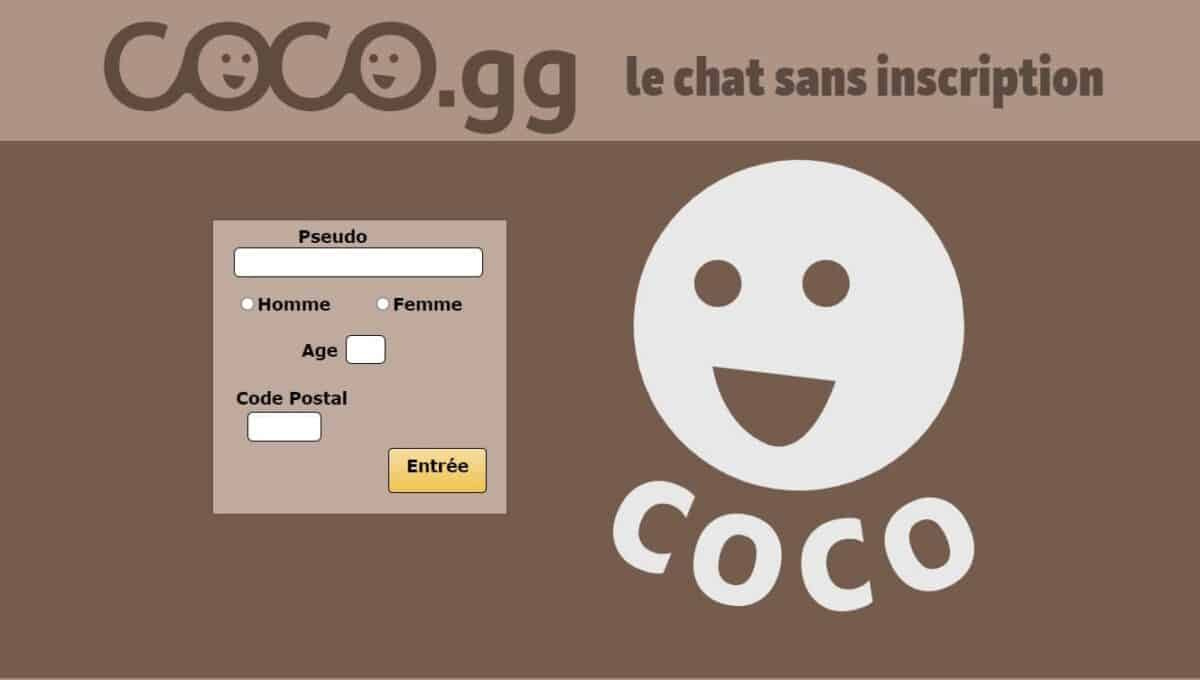
The German site hosting this chat room, Coco.gg, is now shut down, but it’s reportedly been linked to 23,051 criminal actions across 70 public prosecutors’ offices in France alone.
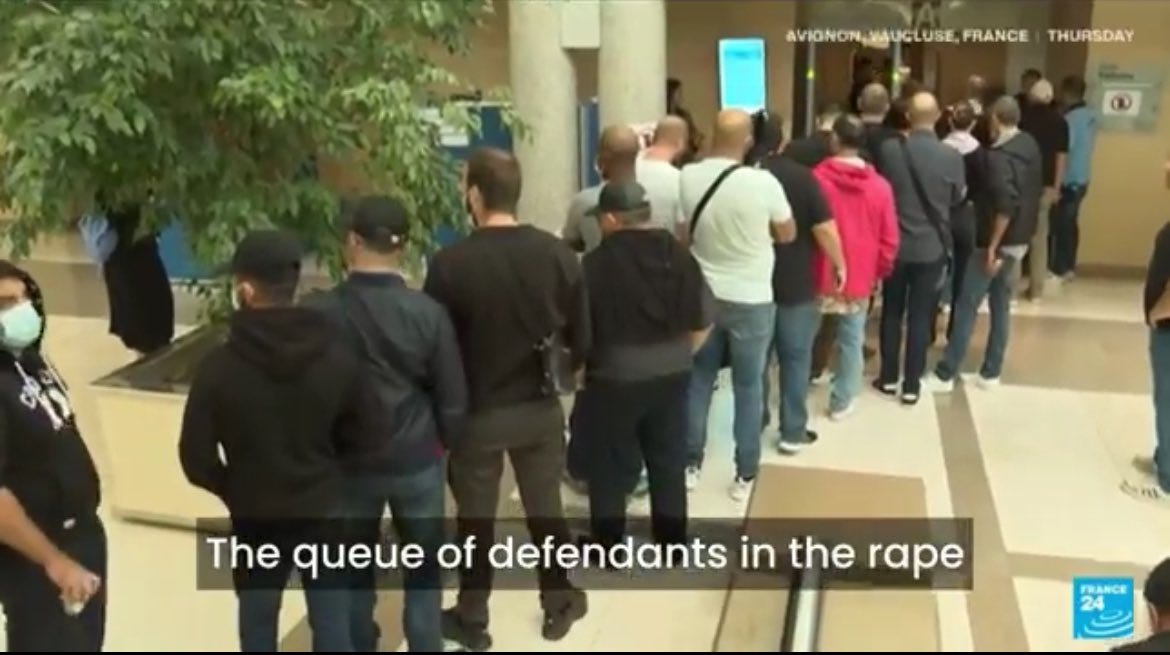
I think of breaches such as the Pélicot rapes like the “Upside Down” in the TV series Stranger Things—an evil, alternate dimension that sometimes can manifest egregores that enter and leak into the real world to harm people, destroy lives, or spread violence before slipping back into the anonymity of the Internet Otherworld.
This Age of Breach is set to intensify with the rise of AI, as we won’t know if the archetypal leaders of realms, their collective unconscious manifested as egregores, or their other individual members, are real humans or AI bots.
“The Mushroom said to me once, this is what it’s like when a species prepares to depart for the stars.” — Terence McKenna
Now You
Does this resonate with you?
What Otherworlds are you a member of?
Do you have any fragmented or adopted archetypes or identities?
What techniques do you use to manage dipping in and out of these realms?
For me, I think one of the best management techniques is spending time in another Otherworld, an InnerWorld—in meditation—what Eckart Tolle calls “Deep Space,” or what Hindu mythology calls ākāśa (आकाश) in Sanskrit, the "space" or "ether," or the Antarākāśa, the subtle, formless inner space that can be perceived when one closes their eyes and meditates.
However, I’m not always good at visiting this inner Otherworld, and I’m definitely spending more time on TikTok daily than in meditation… This is something I want to change, but struggle to change.
Further Exploring
In his talk, Alex also recommended some works for further exploration on these topics:
Books:
The Ai Mirror by Shannon Vallor.
Archaic Revival, by Terence Mckenna.
Recapture the Rapture: Rethinking God, Sex, and Death in a World That's Lost Its Mind, by Jamie Wheal
Podcast:
The Emerald Podcast
Essay:
Reality Eats Culture for Breakfast by Alex Beiner
Watch part of Beiner’s talk from the seminar on YouTube:
That’s all!
XXXOOO
Charlotte Dune
This example is my own, not Alex’s
My additional example







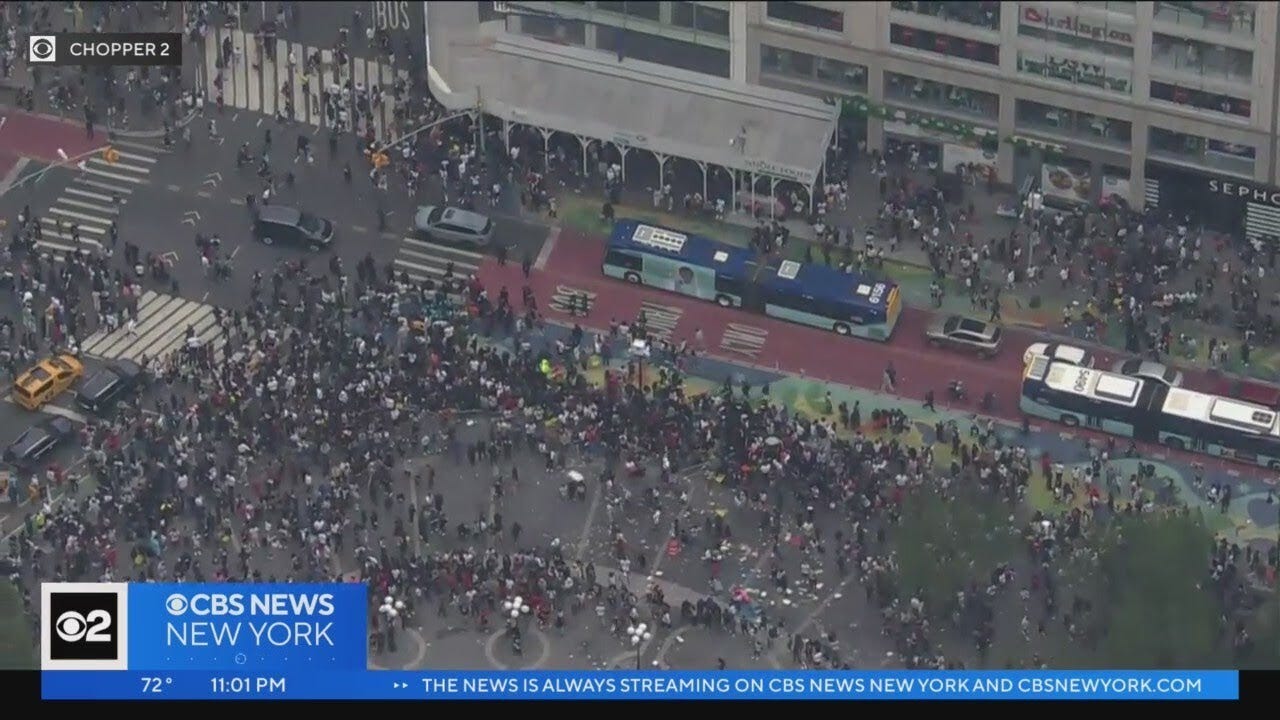
Yes! So timely, a good bit of synchronicity as I just posted today about the other world of the internet taking over my inner world, as I still have not found a balance that feels good. So I am taking as much of a break as I can. I’m less optimistic that a balance can be achieved easily or anything soon with the current systems in place. The youth are suffering much greater fates still. My use is akin to addiction, as I have conveniently removed most of the overt ones from my life, but they just get moved around, diffuse more often than not. Inner compulsions and obsessions to fixate and soothe. I appreciate your in depth look and will enjoy coming back to click around some links, a generous offering of thought. Thank you
Great post! I learned so much. Thank you!